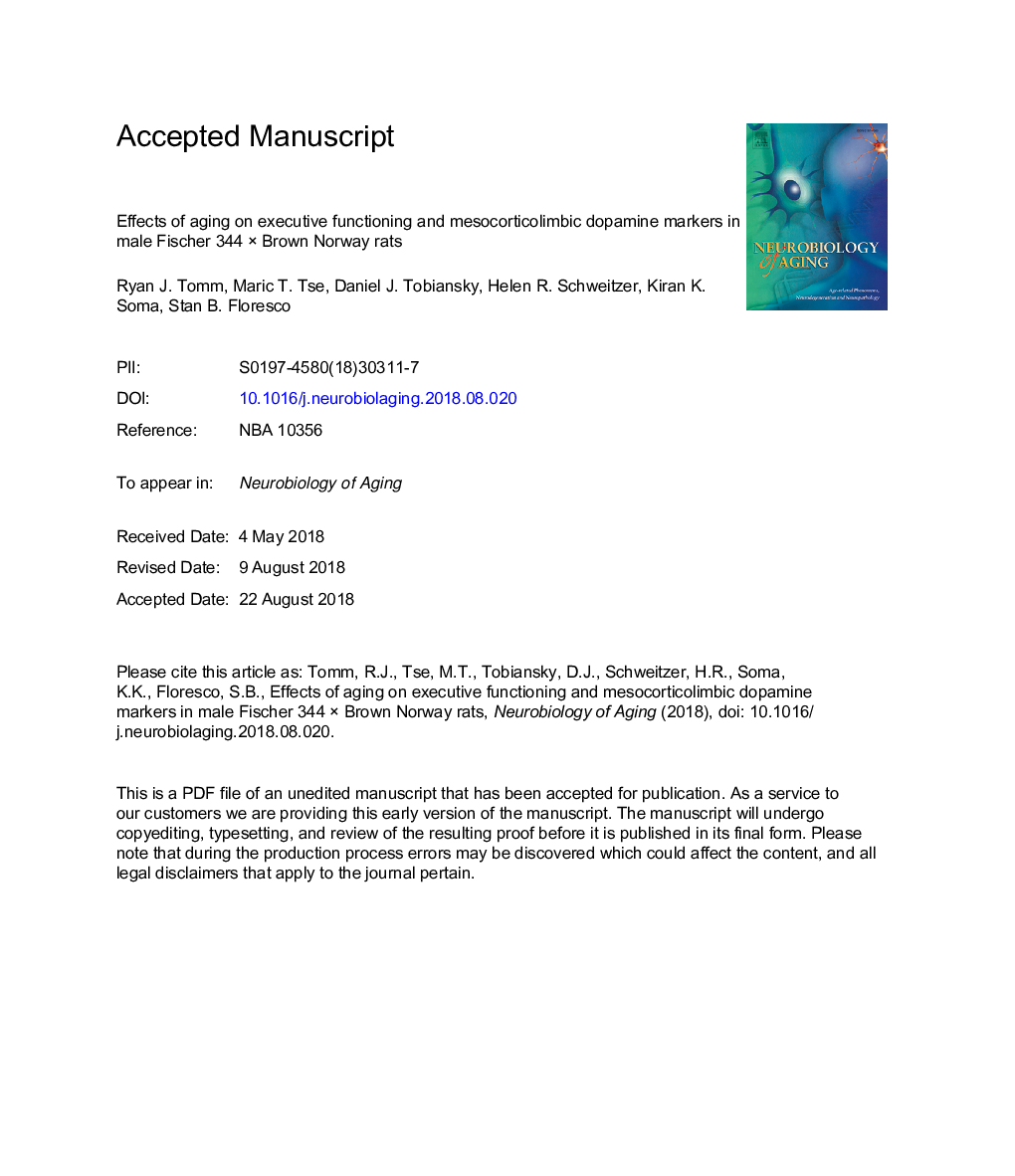| Article ID | Journal | Published Year | Pages | File Type |
|---|---|---|---|---|
| 11031666 | Neurobiology of Aging | 2018 | 39 Pages |
Abstract
Aging is associated with changes in executive functioning and the mesocorticolimbic dopamine system. However, the effects of aging on different forms of behavioral flexibility are not fully characterized. In young (â¼5 months) and aged (â¼22 months) male Fischer 344 à brown Norway rats, we assessed spatial working memory and different forms of behavioral flexibility using operant tasks: strategy set-shifting (study 1) or probabilistic reversal learning (study 2). We also assessed dopaminergic markers using immunohistochemistry. Compared with young rats, aged rats displayed impairments in working memory. Aged rats also showed nonperseverative impairments in set-shifting, with a subset also showing impairments in initial discrimination learning. In probabilistic reversal learning, aged rats completed more reversals, driven by an increased sensitivity to recent reward and negative feedback. Tyrosine hydroxylase (TH) showed region-specific changes with aging and was correlated with several measures of behavioral flexibility. These data suggest that age-related changes prefrontal cortical function and dopamine synthesis contribute to changes in executive functioning during aging.
Keywords
Related Topics
Life Sciences
Biochemistry, Genetics and Molecular Biology
Ageing
Authors
Ryan J. Tomm, Maric T. Tse, Daniel J. Tobiansky, Helen R. Schweitzer, Kiran K. Soma, Stan B. Floresco,
